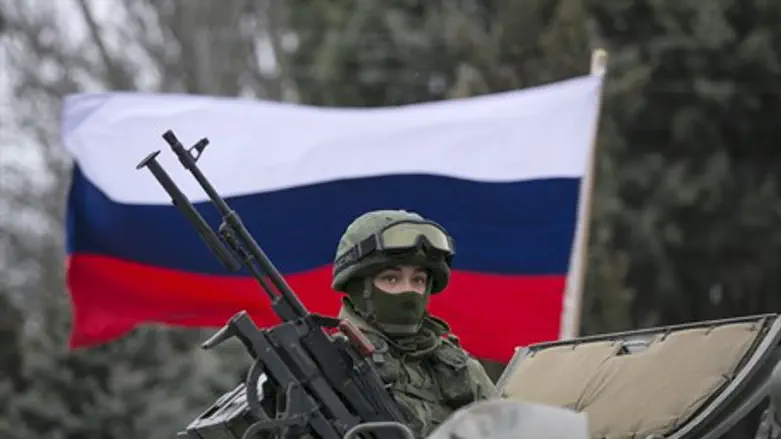
As events in Ukraine continue to escalate, the country's roughly 60,000-strong Jewish community has been feeling the pressure.
Already suffering from high levels of anti-Semitism and, in many cases, from grinding poverty, the ongoing power vacuum and tensions with Russia have markedly increased the sense of uncertainty on the ground. Perhaps of greatest concern is the potential for the growing nationalist sentiment on both sides to generate a spike in xenophobia, with several anti-Semitic attacks in the past few weeks fueling the debate between Kiev and Moscow about the true nature of the Ukrainian revolution.
It is within that context that the Jewish Federations of North America launched their Ukraine Appeal, says JFNA CEO and President Jerry Silverman, motivated by the "guiding principle of kol Yisrael areivim zeh lazeh - that all Jews are responsible for one another, no matter where they are."
Despite the growing uncertainty, the physical situation on the ground is stable, if tentatively so.
But the conflict has thrown up a number of serious challenges to the continuation of normal life there, including a plummeting economy and rising prices threatening to disrupt regular operations at a time when more people than ever are relying on the Federations' support network.
"Our number one priority is caring for the most vulnerable, those who can't really care for themselves... to ensure that they're not alone in such difficult times," Silvermen says. "When instability hits, when you have you have this type of destabilization of an entire country or region... we have to be prepared to continue our work in in situations that are very, very challenging."

So far, the JFNA's operations are still functioning smoothly, including in the breakaway Crimea region.
"We are a non-political organization, as are our partners, so for the time being we have not seen any disruption of any of our activities in the Crimea or elsewhere," he says.
But although the Jewish community has weathered the storm so far, recent clashes between pro-Russian militias and the Ukrainian military in the Crimea - including the takeover of a Ukrainian naval base in Sevastopol - have indicated that things could still escalate.
Security in particular has become of primary importance, from "providing funds for many more hours of security work at local schools and community centers" on the one hand, to "making sure that our own people on the ground are safe."
"For us it's a matter of not taking chances," he adds.